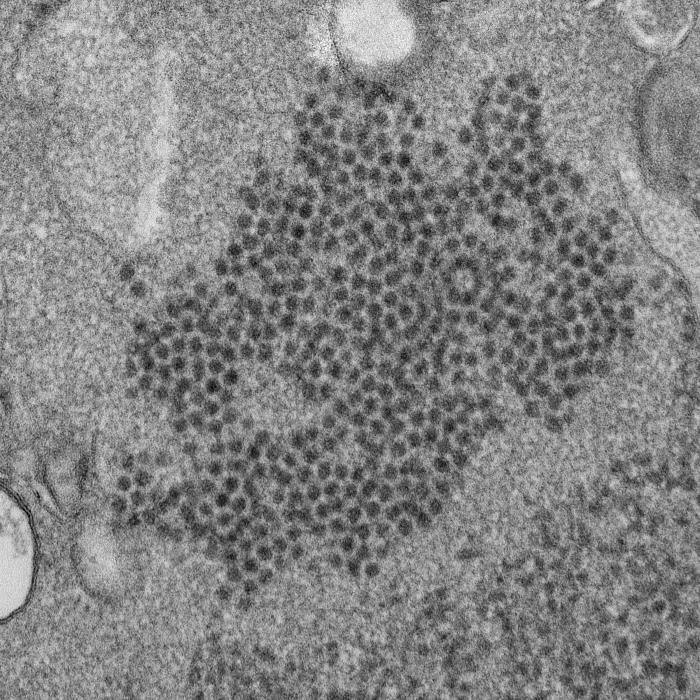NIAID working on enterovirus vaccine to fight acute flaccid myelitis
Add Axios as your preferred source to
see more of our stories on Google.

Recent research showing stronger links between an enterovirus and the polio-like illness called acute flaccid myelitis has led the National Institutes of Allergy and Infectious Diseases to start work on an EV-D68 vaccine, director Anthony Fauci tells Axios.
Why it matters: While rare, the devastating illness AFM suddenly strikes children, causing abrupt muscle weakness, paralysis or sometimes death. Researchers have been on the hunt for its cause — and while not definitive, the link with enterovirus D68 has grown stronger, including via a new study in the peer-reviewed journal mBio.
What's new: Using a new tool, scientists detected more traces of virus in this study, which was funded by NIAID.
"This is a hit-and-run virus. It comes in, does its bad thing, and leaves [while] its antibodies hang around."— Anthony Fauci
The backdrop: Since the Centers for Disease Control and Prevention began tracking AFM in 2014, 574 patients have been confirmed, mostly children who often reported a respiratory or gastrointestinal illness in the weeks prior to the attack.
- Spikes in AFM cases tended to happen during outbreaks of EV-D68 and EV-A71 — casting suspicion on these viruses as playing a role. However, most prior studies were unable to detect significant amounts of virus in the spinal fluid, despite some showing 40% of patients had evidence of enterovirus RNA in other samples.
- A preliminary report published last month in the journal BioRxiv, which is not peer-reviewed, used different methods but also found higher levels of antibodies from enteroviruses in the spinal fluid of children who had AFM.
- Viral presence in spinal fluid would indicate a stronger link to the illness, which affects the spinal cord's gray matter.
- The illness appears to peak every other year (2014, 2016, 2018). For 2019, CDC has confirmed 13 cases in 8 states so far.
What they did: The mBio study examined the spinal fluid from AFM patients and compared them to non-AFM patients with other central nervous system diseases — looking for both genetic.
- They first tested the samples of 14 AFM patients and 5 non-AFM patients through a highly sensitive viral genetic sequencing system.
- They then looked for more indirect evidence of EV infections by developing a microchip assay to detect antibodies from any human enterovirus infection. They tested the same 14 AFM samples and compared them with 11 non-AFM patients.
What they found:
- The initial genetic test found enterovirus RNA in only 1 adult AFM case and 1 non-AFM case.
- But, the second test found roughly 79% had antibodies to enteroviruses — "significantly higher" than the controls, Fauci says.
- While most people are exposed to EV-D68 and EV-D71 at some point resulting in antibodies, most do not have the antibodies in their spinal fluid, he adds.
What's next: The link between EV-D68 and AFM is strong enough that NIAID is in very early stages of developing a vaccine against it, Fauci tells Axios. "We might as well start now."
Go deeper:
- CDC seeks cause of polio-like illness, urges quick reporting
- Mysterious polio-like illness could be from "hit and run" virus
- CDC: "Frustrated" by rare but sometimes deadly polio-like illness
Editor's note: This piece was updated to clarify the mBio study was 100% funded by NIAID and did not build on the preliminary findings posted in BioRxiv.
